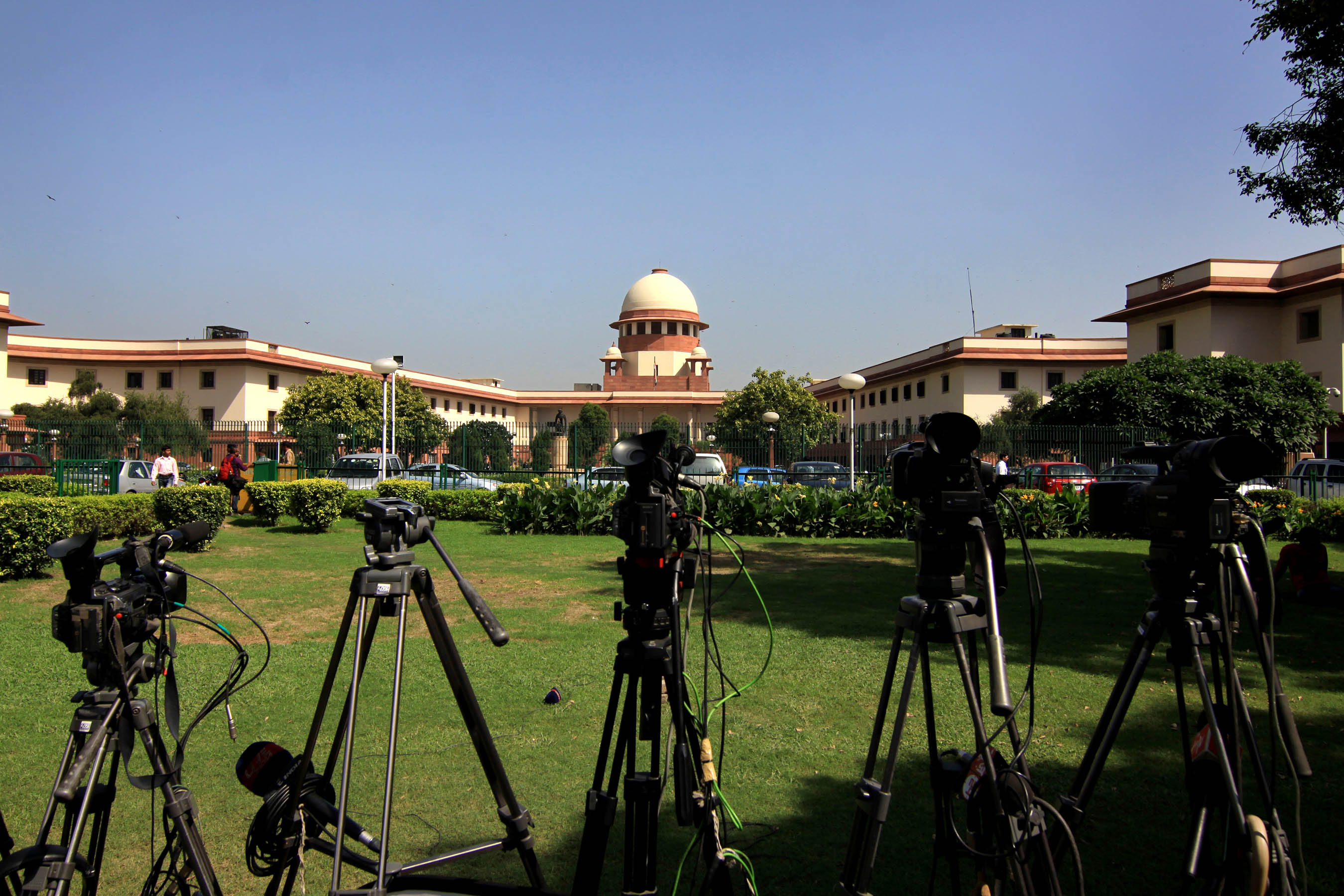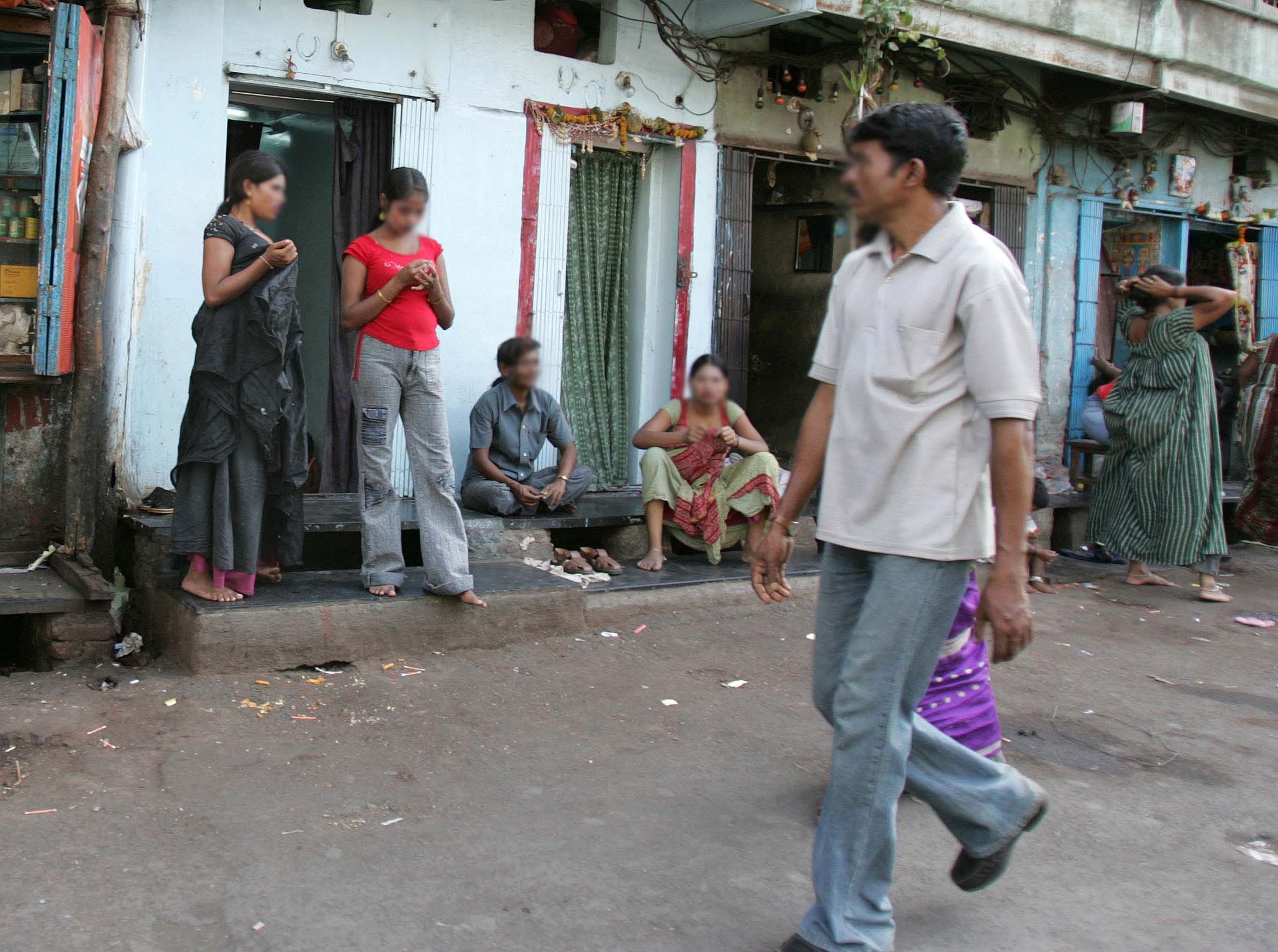
The apex court’s ruling that “prostitution is a profession and sex workers are entitled to dignity & equal protection under the law” is pathbreaking.
It is a call to put an end to widespread inequitable mindsets.
Years ago, a news item created a sensation in Delhi. It turned out that a female sex worker was caught by some hotel security guards leaving the premises of a prominent hotel in Delhi and then was gang-raped by the hotel staff, the hotel manager included. It was only towards the morning that someone reported the matter and she was rescued in a half-dead state. Thankfully the law swung into action and some arrests were made. Though I can’t recall what happened in the case after that, as this crime took place 22-23 years ago, why this case has stuck in my memory was due to the reaction of the people around me. While I was shocked and angered by the violence and cruelty of the crime perpetrated, a few people laughed and some even made bawdy jokes. I got into a heated argument with someone about the fact that it’s not “ok” to rape a sex worker just because of her profession. The other side stuck to their side saying that as she is a sex worker she has no rights over her body and bodily integrity and doesn’t have the right to say “no”.
The whole argument incensed me because I could not believe that an educated person from a good family background could have such an insensitive, chauvinistic and misogynistic mindset. Over the years it dawned on me that I was being naive, because a majority of the male or even female population has the same attitude towards sex workers. They are dehumanized. I won’t go too much into the woes of sex workers or the treatment meted out to them at the hands of pimps, clients, the brothel owners and the cops, because by and large, thanks to the media, movies, Non-Governmental Organisations and the Internet, a large part of the population is aware of what goes down. But I do want to talk about the recent ruling of the Supreme Court of India, which came as a breath of fresh air and will go a long way in making sex work safer and the lives of the women engaged in it a little better.
In a landmark judgement the three-judge Bench led by Justice L. Nageswara Rao recognised sex work as a profession. It exercised its powers under Article 142 (any decree or order passed by the Supreme Court to do complete justice is enforceable throughout the territory of India) to issue a bevy of directions to all stakeholders to uphold the dignity of sex workers. These orders are based on the recommendations made by a committee set up by the top court in 2011 on the emancipation of female sex workers.
The apex court’s ruling that “prostitution is a profession and sex workers are entitled to dignity and equal protection under the law” is pathbreaking. It is a call to put an end to widespread inequitable mindsets and to frame welfare policies that would give female sex workers respect, dignity, protection and basic human rights. For those who missed the ruling, in a nutshell the court’s order states that ‘voluntary’ sex work engaged in by an adult is not illegal. It has ordered that the police must be sensitized to ensure that sex workers are treated with dignity and are not verbally and physically abused. The court issued guidelines to the media not to publish the identities of sex workers. It has ordered that in cases of sexual assault not only should the police act upon the complaint of the woman but also provide medical assistance like it would to any other citizen of the country. The SC has ordered that no criminal action be taken against consenting adult sex workers when a brothel is raided and that the children of sex workers should not be separated from their mothers merely because they are in the sex trade. And, in a highly progressive move it has asked the Government to give the women engaged in prostitution a role in framing policies about sex work.

While, all these orders issued by the court are commendable and will go a long way in improving the lot of these women, to my mind the most important is the directive that when sex workers want to lodge a complaint of sexual assault, they should not be turned away by the law just because of their profession. Because, horrifyingly, according to Cambridge Documentary Films which produced the documentary, “Rape is…,” as one part of the global effort to stop rape, “about 80 per cent of women sex workers globally have been the victim of rape. Prostitutes are raped, on the average, eight to ten times per year. They are the most raped class of women in the history of our planet.” Similar studies on the subject report that 68 per cent to 70 per cent sex workers are raped.
According to Pornography and Prostitution in Canada: Report of the Special Committee on Pornography and Prostitution, women in prostitution have a mortality rate 40 times higher than the national average because of various reasons and sexual assault is also one of them. Sadly in India we don’t have any such study, because the numbers would be telling.
So, it is vital that they be protected and their complaints of sexual assault be taken seriously by the law and the perpetrators brought to justice. Keeping this need in mind, the top court has ordered that assistance be in line with Section 357C of the Code of Criminal Procedure and guidelines and protocols for survivor and victims of sexual violence issued by the Health Ministry.
This will make a huge difference to the often battered and bruised women, because according to the World Health Organisation (WHO) violence against sex workers is frequent and seen by many as an “occupational hazard.” Frighteningly the police and the laws on sex work, which are very, very ambiguous in India, often fail to protect the women, increasing the risk of violence against them by pimps, clients and the public at large. Now, the SC’s directives will give them the much-needed protection.
The court’s direction that the sex workers present during a brothel raid should not be arrested or ill-treated will go a long way in sensitizing the police force and protecting the women, because if the numbers of a study conducted by the WHO are anything to go by, 70 per cent of sex workers in India were beaten by the cops and more than 80 per cent were arrested without evidence.
The court has shown its humane side by ensuring that henceforth no child of a sex worker would be separated from the mother but has also closed all doors for the trafficking of minors by stating, “If a minor is found living in a brothel or with sex workers, it should not be presumed that he/she has been trafficked. In case, the sex worker claims that he/she is her son/daughter, tests can be done to determine if the claim is correct and if so, the minor should not be forcibly separated.”
It has ordered that Governments should comply with these directions till the time legislation is enacted which would enable sex workers to live with dignity. In the words of the SC, these orders “provide hope that the profession will be treated with respect and given all the protection that other professions enjoy.”
What the court has done here is commendable. Because it is only when such highly respected institutions of justice stand up for the abused and the marginalized, living on the fringes of society, despised, ridiculed, looked down upon and shunned by all “respectable” people, that things will change and societal attitudes will improve. Because, it is shocking that as usual, the women who are the victims of circumstance and poverty, lack of education and abuse have to bear the stigma too.
Everyone conveniently forgets the fact that the men who visit these sex workers come from within our own society. If there was no demand there would be no supply. This is the first and most fundamental rule of business. The only difference here is that the commodity being sold here is the dignity and bodily integrity of an individual. Yet, society conveniently forgives the men and castigates the women. Sadly, it is very few people in this world who actually think of sex workers as humans, who have feelings and rights as everyone else.
The SC has shown the way and hopefully, the Government, too, will be up to the task given to it by the apex court, even though right now it has shown some reluctance to involving the women sex workers in framing the policies that will govern sex work and will benefit them.
Because, the court’s responsibility doesn’t end at just giving the directives. As we all know it is the implementation on the ground that really is the litmus test of the will of the court, the Government and all the stakeholders.
But, why is it that we, as a society, never look to the welfare of the unfortunate living among us. Why do we treat sex workers with derision and shun them and treat them as sub-human. Are we not aware of the reality that a large majority of them are forced into sex trade at a very young age, with coercion, rape and beatings being the norm rather than an aberration?
Also, the ones who are in it voluntarily are there because their circumstances drove them to it as they were not qualified for anything else. Otherwise who in their right mind wants to be raped and abused and beaten on a daily basis?
No matter how many laws are made or orders are passed by the SC, the lot of sex workers will never improve till society changes its attitude towards them. We must accept that it is the oldest profession in the world and it’s not going to die out anytime soon. So, why not take a page out of Amsterdam’s book and ensure a safe and dignified life and working environment for the women to work in. At one time sex work in Amsterdam was a criminal offence too. But in 2000, the Dutch Government pushed by changing social attitudes passed a Bill abolishing the ban on brothels. Among other things, this put sex workers on par with other professions, which also included income tax and access to social security. As we all know, today sex tourism is a source of revenue for the Government and this in turn once again made life easier and safer for the sex workers. The court’s ruling is a first step towards giving a life of dignity and safety to these unfortunate women and de-stigmatise the work that they do. Hopefully, society and the Government will also aid and abet in helping the court achieve its aim of improving the lot of sex workers in the country. It is time to humanise dehumanised sex workers.











